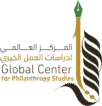As part of its humanitarian program to combat blindness and treat ophthalmological diseases prevalent in Africa through the removal of cataracts, the IICO approved two medical projects to conduct 2,500 eye surgeries during the coming period in Niger and Chad. The project is implemented in cooperation with its office in Niger and Al-Shafie Organization for Development, Education and Charitable Works in Chad, and the IICO’s Al-Ta’khi voluntary team.
As the project studies indicate that the project of combating blindness in Chad aims to treat 1,000 poor patients, men, women, and children, in government hospitals in the states of Hajar Lamis, Salamat, Wadi Fira and Mayo Kebbi West, at a cost of 32 Kuwaiti Dinars for a single operation, medicines, and glasses.
In Niger, the project aims to perform 1,500 surgeries to remove cataracts from the eyes, with lens implantation, examination, and follow-up, at a cost of 33 Kuwaiti Dinars per operation, in hospitals in Niger, in cooperation with the Ministry of Health and Social Affairs in Niger.
Furthermore, the IICO’s blindness control program targets the poor, the needy, the elderly, widows, orphans, and people with special needs to alleviate their suffering and reduce cases of blindness resulting from the accumulation of cataracts. As well as to contribute to government programs aimed at combating these diseases and helping patients to resume their lives and manage their affairs, by conducting examinations and distributing medical glasses for the visually impaired, performing cataract operations, and distributing necessary medicines.
Such projects require trained administrative staff, and medical staff specialized in ophthalmology, a number of medical glasses that cover the desired number of patients, and a hospital to perform operations, medications, services, and medical advice.
In this context, large numbers of people with eye diseases in both countries need treatment, as the poor people in desert and semi-desert regions suffer from poor medical care, in addition to the lack of resources and the inability of these patients to be treated in eye centers, in addition to the lack of specialized medical centers in this field.
It is worth noting that Niger suffers from a prevalence of eye diseases at a rate of more than 35%, especially in the provinces located in a desert environment, with a total population of 8 million, according to the statistics of the Ministry of Health.




